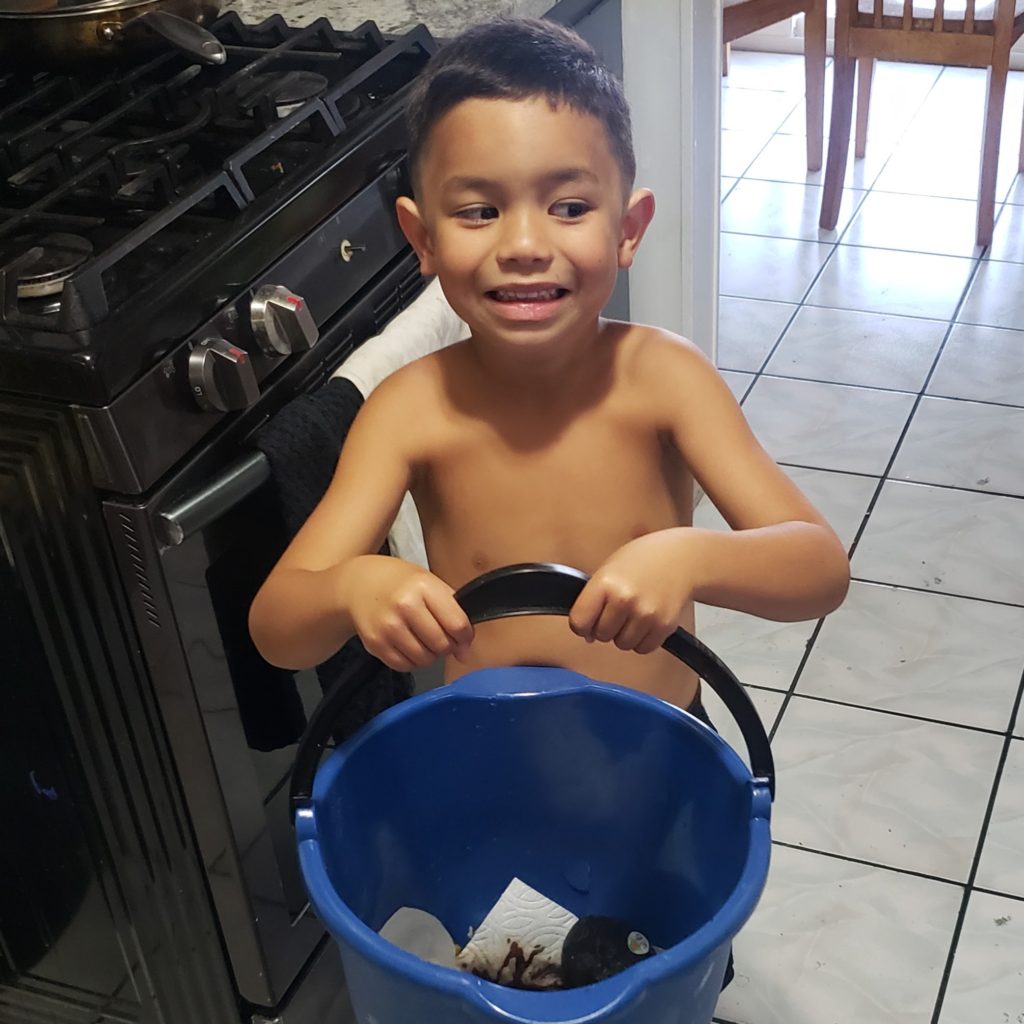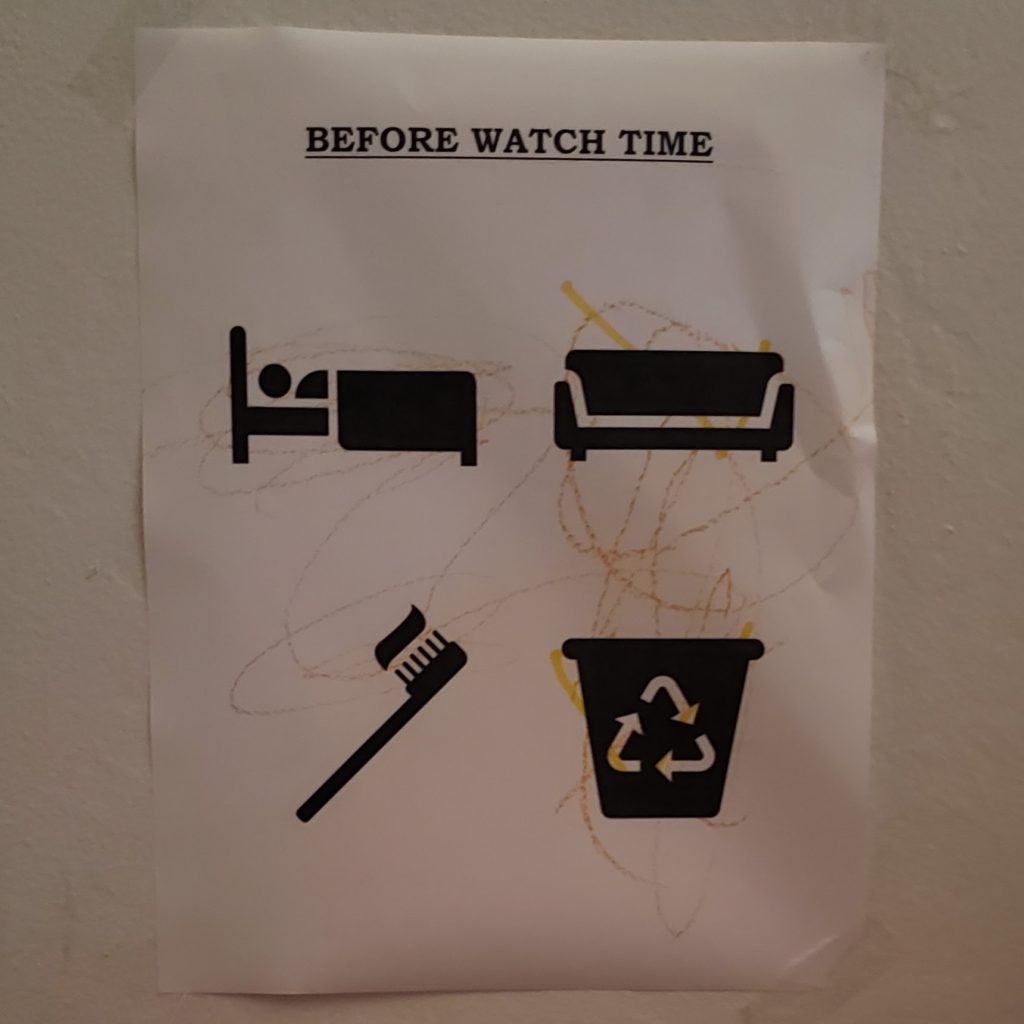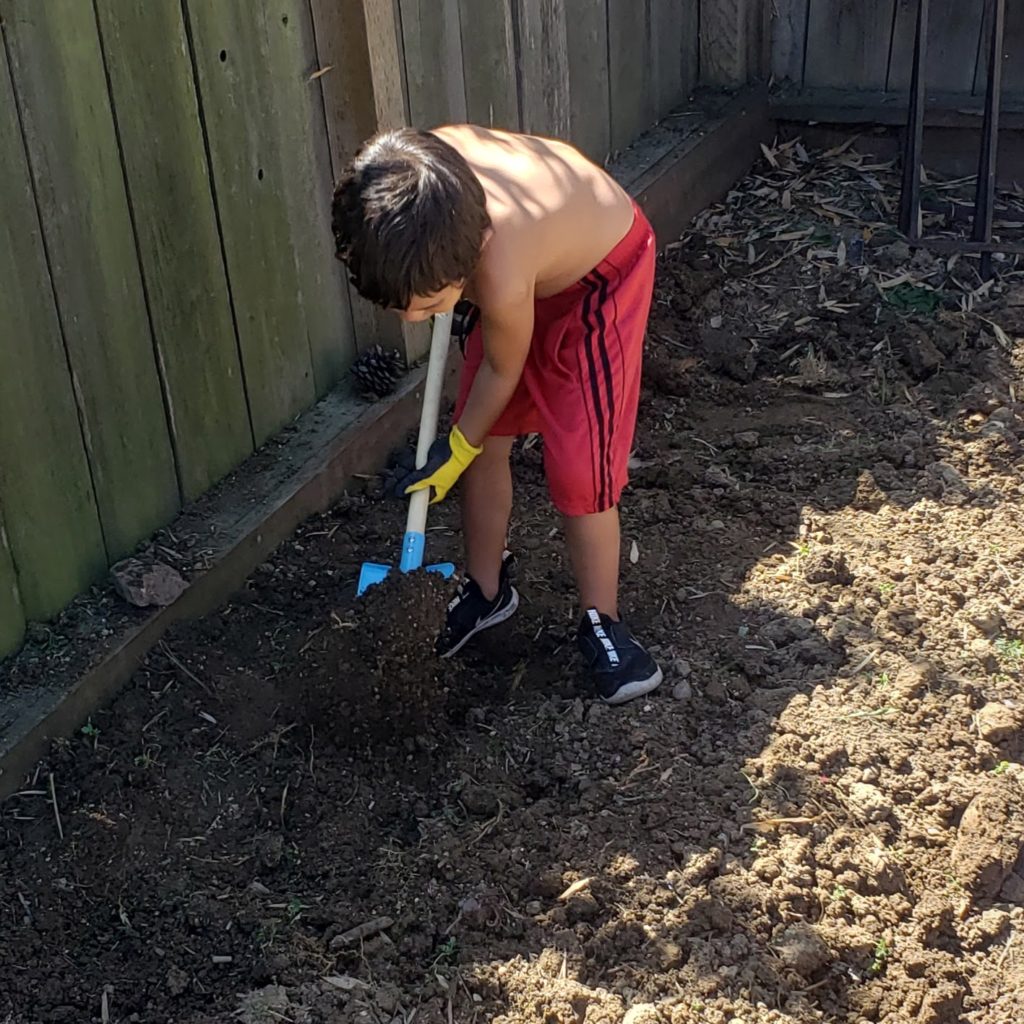For about a week, I had been walking past my children’s room and just glancing inside. I wouldn’t walk inside unless I had to because the mess was overwhelming. They have shelves where all their toys, games and art supplies can be sorted and put away neatly. It looked like every toy, game, and art supply was on the floor and under the beds. Messes like that make my anxiety skyrocket, so instead of addressing the problem, I went through multiple days avoiding it, telling myself daily that I really needed to get that room cleaned.

When Sunday afternoon rolled around, I asked Afa if he could watch the kids so that I could work on their bedroom, and he responded that they made the mess, and they needed to help clean it up. I took the three of them with me (ages 2, 4, and 5) and made an honest attempt to have them help. The problem was that the boxes for storage were all mixed up, and I wanted to get them sorted properly so we could find scissors when we needed them or a particular game when we looked for it. Having three young children, including a toddler, help me with these things, especially in an environment where my anxiety was already elevated, predictably ended in an all-world meltdown – from me. When Afa came to check on us, he offered to clean it for me, and I asked if he would just take the kids and give me some time to do it. I buckled down, put on the BEMA Discipleship podcast and got to work. In about two hours, I had the room back to order and organization.
After that I decided that I did not want to get to that point again so we needed to clean the room every day and that the kids needed to help me. I had read an NPR article months before about the easiest way to get the kids to help around the house, but I hadn’t implemented any of the suggestions. This was the time, and it took several iterations to find what worked for us as a family. I first attempted to have us clean the living room and the bedroom each day before Afa came home. This didn’t work well for us because that’s a high stress time of day when I’m counting minutes until Afa returns, and my patience is stretched so trying to have them do chores at that moment ended with me yelling most of the time. It also cut into our outside each day, and because the children and I both benefited from that time, removing 30 minutes from it was not a great solution.

The next iteration was more effective. We have TV time each evening at 7:30, and I decided to print a very simple list of chores that needed to be done each day before that. None of my kids were readers yet, so I used very basic pictures to represent each task. They are responsible for tidying their bedroom, tidying the living room, emptying the indoor recycling and compost pails into the outdoor ones, and then brushing their teeth. Once all four of these have been completed, they can turn their TV on.
It has worked wonders for us. We have a set schedule and start each night between 7:15-7:30pm. The kids have been doing them for so long that we don’t even use our sign anymore. They already know the four chores that they need to do, and Ana Lia frequently starts them ahead of time. Afa and I participate in all of them because the kids are still so little, and for the moment, it’s a bonding family time every day. While I’m sure it’s coming as the kids grow up, until now, there has been no complaining or huffing about doing all the chores before TV time. It has simply become part of our routine. It has also kept their room in a manageable state. Now that we tidy it every day, I don’t think it ever takes more than 5-10 minutes to get everything put back in its proper place. The living room is always usable now and never completely out of control.
In fact, it worked so well that I decided to add a big morning chore to each day so that I could get those into our family routine and teach the kids how to do even more things around the house. On Mondays, we mop the kitchen floor; Tuesdays, we do laundry; Wednesdays, we clean the small bathroom; Thursdays, we move all the furniture and vacuum the living room floor; Fridays, we clean the big bathroom. Each of these take about 30 minutes right after breakfast (except laundry, which is on and off), and they are learning to do each of them.

Because these are bigger chores and several involve water, these take more adult involvement and a lot more patience. Would it be easier to mop my kitchen floor without my three young children? Undoubtedly. It would take less time and be far less messy. But I would miss out on all the opportunities that come with teaching them to do these tasks. First, they WANT to help. At this age, they think mopping and scrubbing the bathtub is fun; so I want to harness that eagerness. Second, I need to learn to be more patient in these moments. I mentally prepare ahead of time and pray for patience as we learn together. It’s a process, but also an investment in the future of our household and their future. Prayerfully, as they grow, they will have all these skills through years of practice and discipline.
Chores are going to look different for every family. For example, we have had the children take their plates from the table to the sink for a long time, but I wanted them to learn to wash their dishes too. It seemed like having them wash their one plate and cup right after dinner was a quick way to teach them this skill. My mother-in-law lives with us and does almost all our dishes. Having the kids in her space and doing all the dishes wrong was stressful to her, and she really wanted them to leave. After trying to implement this for about a week, it became clear that it was adding more conflict to our home than it was helping the children learn to be responsible; so we returned to the practice of having them simply clear the table and put their dishes in the sink.

Don’t get discouraged when there missteps along the way. What works for someone else may not work for you, but that’s okay. Try different schedules, times of day, chores, or routines to see what adds peace and joy to your family, not conflict and stress. When chore time comes, make sure your attitude is upbeat and fun to communicate to your kids that this is a family time we can enjoy rather than a burden that we have to endure.
The final aspect of chores around our house is that we try to disconnect them from rewards or punishments. Our goal is to help them be intrinsically motivated to keep our family spaces orderly. If we tie their chores to allowance, it creates the association that they are getting paid to keep their spaces tidy. If there are punishments for not doing chores, it becomes a task they do begrudgingly. By removing these external motivators, it takes longer to build into the routine, but we have found the additional time to be a good investment. Chores become part of our daily rhythm, and we don’t move to the next part of the rhythm until this one is finished. Like I said, my children are all very small and willing to help, so I may look back on this in ten years and laugh at my naivete, but for the moment, we are enjoying our daily chores together without the coercion that American families often attach to them.